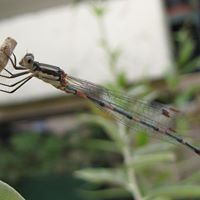What is the name of this plant cultivated for its tuber?
The Jerusalem artichoke ('Helianthus tuberosus'), also called sunroot, sunchoke, or earth apple, is a species of sunflower native to central North America. It is also cultivated widely across the temperate zone for its tuber, which is used as a root vegetable.
'Helianthus tuberosus' is a herbaceous perennial plant with yellow flowers produced in capitate flowerheads. The tubers are often elongated and uneven, typically 7.5–10 cm (3.0–3.9 in) long and 3–5 cm (1.2–2.0 in) thick, and vaguely resembling a ginger root in appearance, with a crisp and crunchy texture when raw. They vary in colour from pale brown to white, red, or purple.
The tuber contains about 2% protein, no oil, and little starch. It is rich in the carbohydrate inulin (8 to 13%), iron, phosphorus and vitamin B1. It has also been reported as a folk remedy for diabetes.
By the mid-1600s, the Jerusalem artichoke had become a very common vegetable for human consumption in Europe and the Americas, and was also used for livestock feed in Europe and colonial America. The French in particular were especially fond of the vegetable, which reached its peak popularity at the turn of the 19th century. The Jerusalem artichoke was titled 'best soup vegetable' in the 2002 Nice Festival for the Heritage of the French Cuisine.
More Info:
en.wikipedia.org


